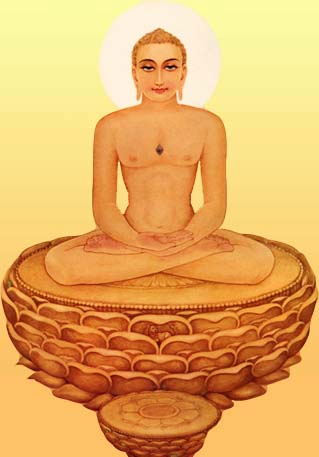

Daily Excelsior
 Those who live within the periphery of the senses and the mind, encounter thousands of problems. These problems no government can solve. A government is capable of solving the problem of food, shelter and clothing, but it cannot resolve the problems created by the senses and the mind. Nobody can. Only a man's own intense meditation can resolve these. There is' no other way. That is why we are discussing samadhi today The problem which cannot be resolved at the social or governmental level can be resolved on the individual level through samadhi.
Those who live within the periphery of the senses and the mind, encounter thousands of problems. These problems no government can solve. A government is capable of solving the problem of food, shelter and clothing, but it cannot resolve the problems created by the senses and the mind. Nobody can. Only a man's own intense meditation can resolve these. There is' no other way. That is why we are discussing samadhi today The problem which cannot be resolved at the social or governmental level can be resolved on the individual level through samadhi.
The problem means - the influxes, and samadhi means - restraint. The problem means - infatuation, and samadhi means - the experiencing of consciousness. One thing is certain. Had there been no infatuation, a man could not live in this world. Every individual is caught in illusion; that is how he is able to live at all. Our body is provided with all kinds of defence mechanisms. As long as the body can endure suffering, it keeps awake, but when suffering increases and it can endure it no longer, it falls unconscious. In the case of some terrible diseases extreme dejection and suffering, a man immediately goes into unconsciousness. This is nature's own provision that since a man cannot endure too much suffering while keeping awake, let him fall unconscious. Either extreme pain itself pushes a man into unconsciousness or the doctor makes him unconscious through external devices.
Unconsciousness is non-meditation - this is our problem. The experiencing of awareness is samadhi.
Sleeping is a problem; keeping awake is samadhi. That we go to sleep is our biggest problem. Our waking up is samadhi. The experiencing of consciousness is samadhi; to be awakened is samadhi, practicing restraint is samadhi.
Auspicious and inauspicious factors do bring about a change in the arising of karman, but the mind's determination is the greatest factor of them all. The change wrought by will-power is not possible through other factors. Those who are steadfast in their determination are able to accomplish great work. Gautam asked:
" Illustrious one! What does a living being acquire through control?"
Lord Mahavira replied: "Through control, the soul neutralizes the influxes."
Control results in a state of being free from influxes, the man whose power of control, is developed, becomes immune to the entry of heterogeneous matter. A temperate person is not much affected by outer influences. It has been said, do everything at the right time. Eat, when it is time to eat. Sleep, when jt is time to sleep. Do everything at the right time. If you do meditation at 9 0 clock, and meditate every day at that hour, and do not accept any other demand of the mind, your power of control will grow strong.
Self-control is a kind of 'kumbhaka' ('a phase in pranayama of stopping the breath by shutting the mouth and closing the nostrils with the fingers of the hand'). Just as in kumbhaka' the breath is held back, similarly in self-control, desire is restrained. Lord Mahavira said: "The heat and the cold, hunger and thirst, disease, abuse, blows - endure them all"
With the establishment of self-control, restraint is achieved. Self-control is our sadhana; restraint is the fruit thereof. The non-entry into the soul of any heterogeneous element from outside is restraint.
With the practice of self-control, the influx of foreign matter stops of itself. With the perfection of restraint, the consciousness of penance begins. A new movement starts. Hitherto, regular supplies from outside provided a good deal of energy. With the stoppage of outer provisions, a great commotion is caused inside. The process of penance is a spiritual practice whose consummation is the dissociation of karman.
The dissociation of karman is no sadhana; restraint in itself is no sadhana. Both these are accomplishments. The consummation of self-control is restraint; and that of penance is the dissociation of karman.
When the outer influx ceases, and that which is within, begins to move outwards - it is difficult to contain it - the condition of motivelessness is achieved. After the achievement of motivelessness, one attains perfection. Then the spectator stance, the state of being the knower-and-seer only, is stabilized. The pilgrimage started for the achievement of the spectator stance is culminated. This is the end of our pursuit. Herein, our true nature stands manifested. Our true nature is - perfect, enlightened and free.